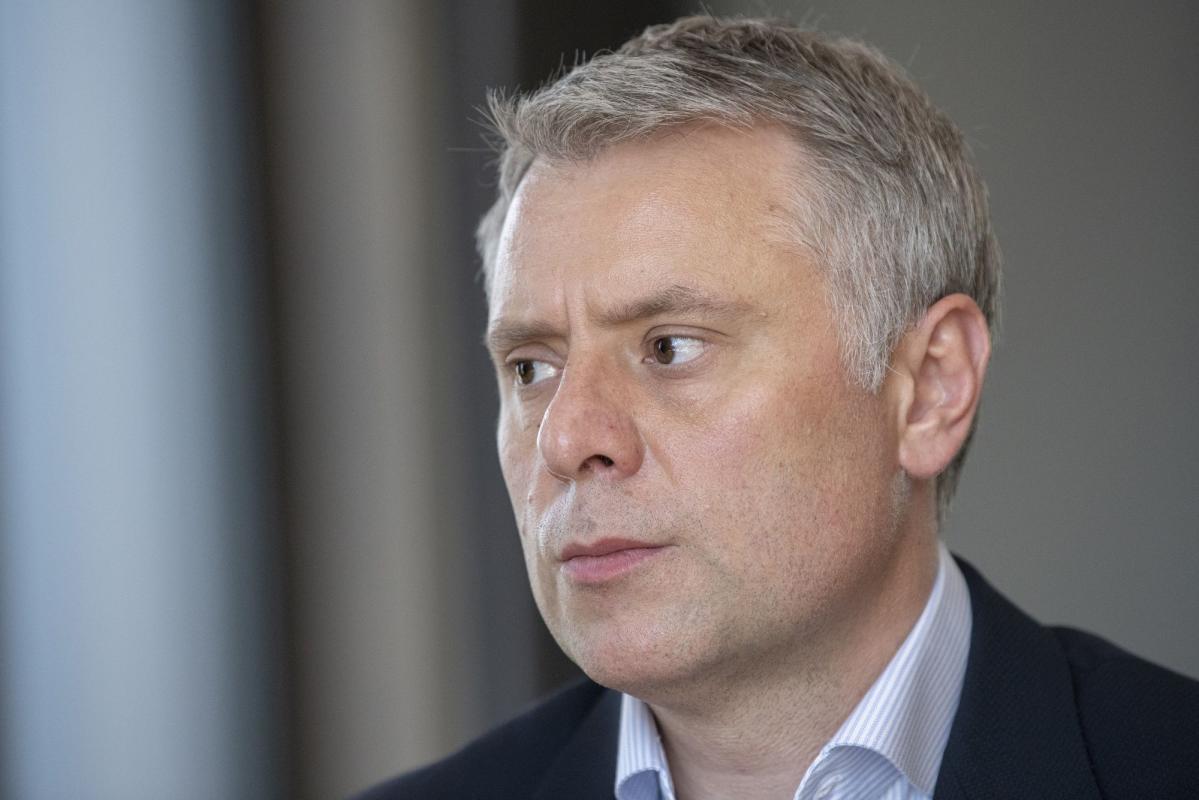
(Bloomberg) — The United Nations called a halt to grain ships moving through Ukraine’s crop-export corridor in the Black Sea after Russia warned that vessels weren’t safe using the route. Turkey’s president, Recep Tayyip Erdogan pressed President Vladimir Putin to resume Russia’s backing for the export agreement.
Most Read from Bloomberg
French President Emmanuel Macron pledged to provide additional air defenses to Ukraine and help rebuild energy infrastructure in a phone call with counterpart Volodymyr Zelenskiy, who called the exchange “extremely important.”
Zelenskiy told a top European Union official visiting Kyiv, energy commissioner Kadri Simson, that Russian attacks “seriously” damaged 40% of Ukraine’s power infrastructure. Ukraine’s power grid operator announced plans for cuts on Tuesday in Kyiv, as well as in seven central and northern regions.
(See RSAN on the Bloomberg Terminal for the Russian Sanctions Dashboard.)
Key Developments
-
Grain Markets on Edge for Escalation After Russia Warns on Ships
-
Ukraine Crop-Export Inspection Pace Soars as Russia Steps Back
-
Holland & Barrett’s Russia-Linked Owner Buys Back 99% of Loans
-
Russian Mogul Tinkling Gives Up Citizenship After Blasting War
-
US to Exempt Russia Oil Loaded Before Dec. 5 From Price Cap Plan
-
Russia’s Wheat Harvest Set to Ease From Record in 2023 on Rains
On the Ground
Russian forces maintained an offensive toward the cities of Bakhmut and Avdiivka in the Donetsk region, while continuing to transfer individual units to Belarus, according to the Ukrainian General Staff. Russia has launched more than 400 Shahed-136 drones against Ukraine, more than 300 of which have been shot down, Yuriy Ignat, a spokesman for the Ukrainian Air Force, said in a video briefing. Russian officials in occupied Kherson are using shifting rhetoric to describe a Ukrainian threat to the Kakhovka hydroelectric dam, potentially to accelerate an evacuation from the west bank of the Dnipro river and eventual withdrawal of Russian forces, according to the Institute for the Study of War.
(All times CET)
Russia May Receive Surface-to-Surface Missiles From Iran, US Says (5:23 p.m.)
“We are concerned that Iran might be considering the provision of surface-to-surface missiles to Russia in addition to the drones,” John Kirby, spokesman for President Joe Biden’s National Security Council, told reporters in Washington. Iran has already provided Russia with drones used by the Kremlin to attack Ukraine.
UN Halts Flow of Ukraine Grain Export Ships on Wednesday (5:01 p.m.)
Wheat prices rose after the UN announced the decision, taken jointly with Turkey and Ukraine. It didn’t explain the reasoning but the move comes after a deal aimed at allowing for crucial Black Sea grain shipments unraveled and Moscow said ships’ safety couldn’t be guaranteed.
Russia suspended its role in the pact over the weekend, citing drone strikes against its naval vessels. The agreement — signed in July — guaranteed the safe passage of Ukraine crop exports, which are badly needed by food importers amid surging prices and a global cost-of-living crisis. Grain vessels continued to leave Ukraine on Monday and Tuesday, even after Moscow withdrew its support for the deal.
Russia ‘Seriously Damaged 40% of Power Infrastructure: Zelenskiy (4:28 p.m.)
The Ukrainian leader discussed the consequences of Russian attacks on the country’s energy system with the EU’s Simson. Thermal power plants, heat suppliers and hydro power stations were hit by Russian missiles and drones, forcing Ukraine to halt its electricity export to Europe. Zelenskiy told Simson that Ukraine seeks to resume deliveries once the situation stabilizes.
Simson earlier called for increased assistance — and condemned Russian attacks against infrastructure as winter approaches. Help had to come from EU institutions and member states as well as international partners and private donors, she said in Kyiv.
Macron Pledges Help on Aerial Defense, Rebuilding Infrastructure (3:50 p.m.)
The French leader pledged to bolster military backing for Ukraine, especially in aerial defense, the Elysee Palace said following the phone call. The two agreed to organize an international conference in Paris on Dec. 13 to assist the rebuilding of Ukraine’s energy system after Russian attacks.
“We must act before winter,” Macron said on Twitter. Zelenskiy earlier thanked Macron for his “unwavering support” after the two spoke.
Ukraine Accepts Naftogaz CEO Vitrenko’s Resignation (3:28 p.m.)
Ukraine’s cabinet accepted the resignation of Yuriy Vitrenko from his post as chief executive of state-run energy giant NJSC Naftogaz Ukrainy. Vitrenko will continue to serve as CEO until Nov. 3, the company said.
Vitrenko, who’d served as Naftogaz CEO since April 2021, was embroiled in a clash with the government over its debt servicing as energy prices surged following Russia’s invasion earlier this year. In July, Vitrenko said he was surprised the government had ordered the company to spend its foreign-currency holdings to buy more natural gas for the upcoming winter instead of paying bondholders, as Naftogaz had planned to do both.
Ukraine Crop-Export Inspection Pace Soars as Russia Steps Back (3:07 p.m.)
The pace of cargoes cleared to head abroad has soared, helping to ease a pileup of vessels, since Russia suspended its role in the Black Sea grain accord.
Some 46 outbound vessels passed inspection in Istanbul on Monday, up more than tenfold from the average for the rest of the month, according to data posted by the United Nations. The pickup comes after Russia stepped back from the landmark Ukraine grain-export deal, which was agreed in late July and has revived the country’s seaborne trade.
Erdogan Confident of Solution on Grain Corridor After Putin Call (2:58 p.m.)
Turkey’s Erdogan told his Russian counterpart he’s confident that parties will take a “solution-oriented approach” in efforts to sustain the Black Sea grain corridor, according to a statement on the call.
A constructive approach on the grain crisis can encourage a return to negotiations, Erdogan said, without giving further details.
Kremlin Says ‘Partial’ Mobilization Is Complete (12:10 p.m.)
The “partial mobilization” of 300,000 reservists is complete and no presidential decree is needed to formally put an end to it, Kremlin spokesman Dmitry Peskov said.
The Defense Ministry announced last week that the call-up was completed, but the lack of a new presidential order formally rescinding it had raised fears it could be restarted at any moment. Asked about the issue late Monday, Putin said he would check with legal aides and determine whether he needed to sign another order. Peskov said that analysis concluded none is needed and the previous decree has lapsed because the target of 300,000 troops has been reached.
Putin’s initial announcement of the mobilization in September fueled public alarm and triggered an exodus of hundreds of thousands of people from the country.
Three Ships Start Journey From Ukraine Via Grain Corridor (10:27 a.m.)
Three outbound vessels started their journey from Ukrainian ports, according to a spokesperson for the Joint Coordination Centre, which monitors vessel movements. The move was agreed to by the Ukrainian, Turkish and United Nations delegations to the JCC and the Russian delegation was informed.
Russia warned on Monday that the safety of ships sailing Ukraine’s grain-export corridor cannot be guaranteed without additional conditions. It said that Russia had not pulled out of the grain agreement but suspended its involvement. Russia has accused Ukraine, without evidence, of using the so-called Black Sea corridor to attack its navy ships.
Oil Market May Face Disruption on Sanctions, Yergin Says (10:08 a.m.)
The oil market could experience severe supply disruptions as the EU tightens sanctions on Russia, according to energy historian Daniel Yergin.
“We haven’t had a scramble for oil since the 1970s,” Yergin told Bloomberg TV at the Adipec conference in Abu Dhabi. “We could have it today. Countries are very much on the edge.”
Oil could rise to $100 a barrel again on severe Russian supply losses, according to the International Energy Forum. “The physical markets are very tight,” Joe McMonigle, the IEF’s secretary-general, told Bloomberg TV at the conference. “The paper markets are pricing in bad economic news and a bad recession.”
Grid Operator Plans Power Cuts (8:49 a.m.)
Ukrainian power grid operator Ukrenergo said it plans power cuts on Tuesday in the capital, Kyiv, and seven regions in central and northern Ukraine. Temporary cuts are needed to lower consumption and balance the energy system in order to avoid emergency blackouts, the company said.
Kyiv Mayor Vitali Klitschko had said earlier that water and power supplies had been fully restored in the Ukrainian capital after Monday’s missile attacks, but warned of potential disruption.
Most Read from Bloomberg Businessweek
©2022 Bloomberg L.P.




